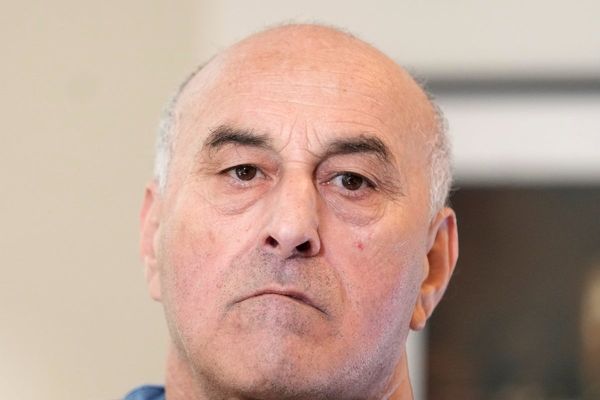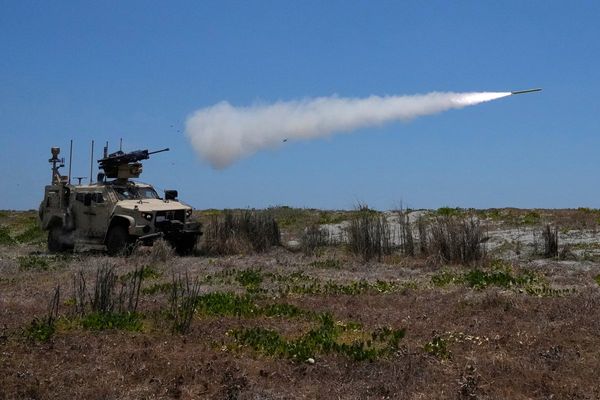
The 11,000 children who learned to swim in the pools Amjed Tantesh built on Gaza’s beaches remain on his mind, and occasionally, to his dismay, make it on to his Facebook timeline.
Displaced from his home in northern Gaza, Tantesh only occasionally has access to the internet. But when he does, he inevitably hears of the deaths of friends, neighbours and former students, and posts tributes to them.
His swimming school has survived previous wars, driven by his ambition to ensure Gaza’s children can safely swim in its seas, but now he dreads the news that another of those children has been killed or injured. In the past week, he has posted a picture of a young boy in a blue three-piece suit. Mohammed Mosalam, Tantesh wrote, was one of his best swimmers, but was killed by an airstrike.

Earlier, Tantesh, from the rural town of Beit Lahia, posted about Mariam Dawas, 11, his student and his cousin’s daughter, losing her legs, as well as the deaths of a swimming coach he worked with, alongside his four young sons.
He also mourned the killing of one of his earlier students, 28-year-old Naser Rajab, who followed Tantesh’s example of caring for the area’s children by becoming Beit Lahia’s lone clown. Tantesh called him “one of the most lively and lovely and funniest person one could meet”.
“So many of my swimming students must have been affected, but I learn only about the closest [to us], whether our neighbours or relatives, especially when most people of Gaza and north Gaza are displaced,” says Tantesh.
Tantesh has coached in Gaza since 1999 when he won a local swimming championship. While he initially dreamed of producing an Olympic competitor – a dream he has not yet been able to fulfil – his concern for the safety of the territory’s children was a key driver. In 2014, several children who lived nearby drowned in the Mediterranean, spurring him to step up the coaching.
He has taught in Gaza City’s fishing port, and dug pools on the beach and farmland. Each time a pool is destroyed by war, he digs a new one. He hired a digger to excavate sand on the beach for a pool and used wartime rubble to create a protective barrier against the sea in Beit Lahia.
Tantesh’s neighbourhood has a strong background in sports. He coaches swimming, his brother is a martial arts coach and a neighbour runs the local athletics team. Their athletes are now dispersed around Gaza, unable to compete and out of touch with their coaches, who are struggling to fend for their own families.

After initially refusing to leave Beit Lahia, Tantesh was forced by the heavy bombardment of northern Gaza to take his family southwards, where Israel told Gazans they would be safer, but which has also been hit by regular airstrikes.
“The feeling of helplessness is the biggest killer of oneself and your spirit. I am neither able to help myself, nor those closest to me, nor my students, in any way,” says Tantesh. “Everything has turned into a big challenge, from finding drinking water to finding some pieces of bread, cooking gas. We are thirsty and hungry. We spend the whole day to barely secure a meal a day for our children.”
Tantesh now worries that the deaths he has heard about represent only a fraction of the real impact, and he mourns the number of Palestinian children killed, now more than 4,200, according to the health ministry in Gaza. “The scale of casualties among children is unprecedented. This will leave permanent negative effects on all the children that will need a lot of effort and many years to heal. This loss is unbearable and can’t be compensated,” says Tantesh.







